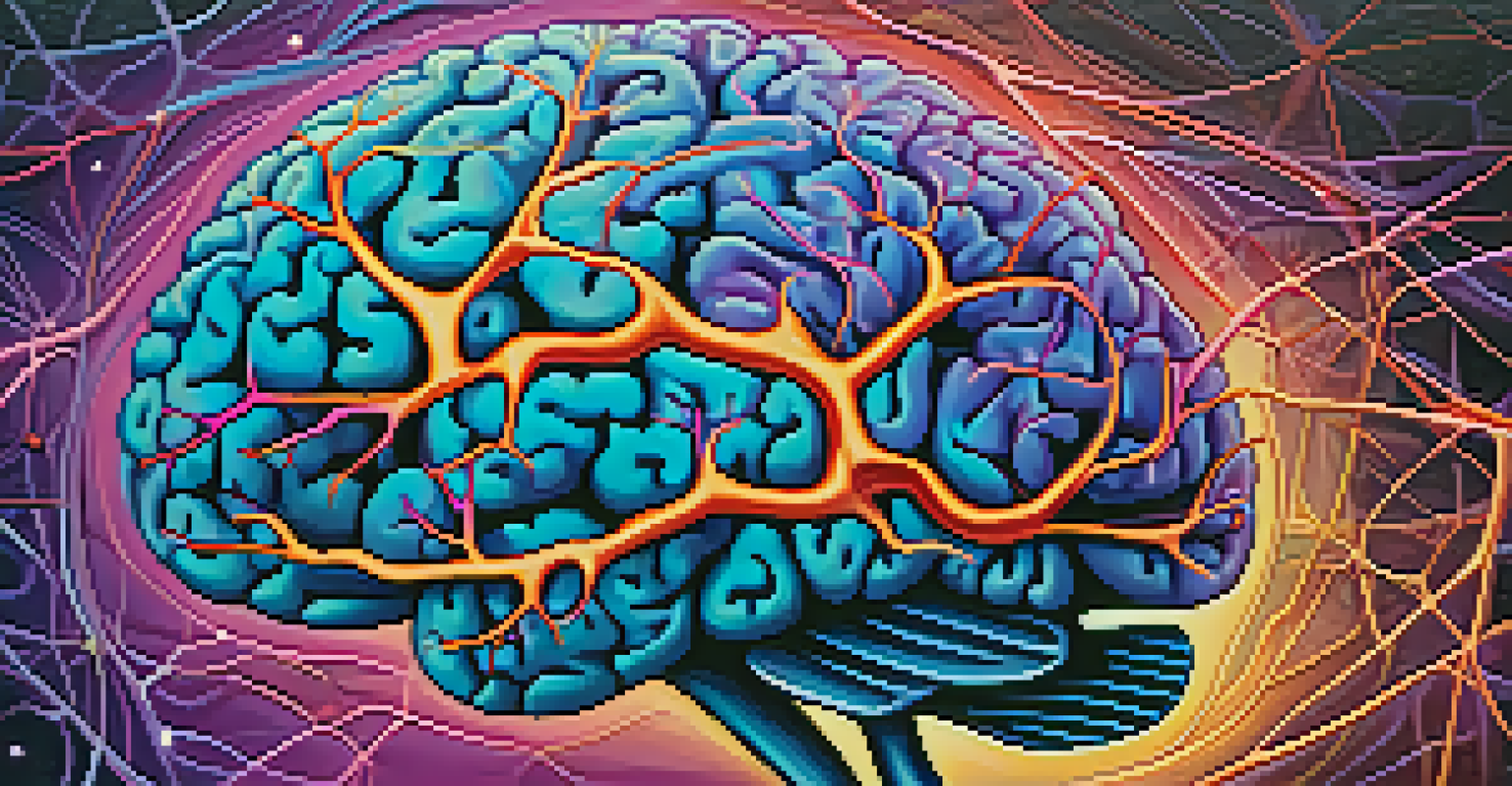The Science Behind Entheogens and Their Effects on Learning

What Are Entheogens and Their Historical Context?
Entheogens are substances that can create altered states of consciousness, often used in spiritual or religious contexts. Derived from the Greek words 'entheos' meaning 'the divine within' and 'genes' meaning 'generated by', these substances have been part of various cultures for centuries. Ancient civilizations, such as the Aztecs and the Greeks, used entheogens during rituals to connect with the divine and gain insights.
The greatest discovery of my generation is that a human being can alter his life by altering his attitude of mind.
In modern times, entheogens like psilocybin mushrooms, peyote, and ayahuasca are gaining attention for their potential benefits beyond spirituality, particularly in education and personal growth. This resurgence has led to a growing body of research examining their effects on the human brain and learning processes. Understanding their historical significance helps frame their relevance in today's scientific conversations.
As interest continues to grow, it's crucial to explore the scientific underpinnings of how these substances might enhance learning. This exploration not only sheds light on their potential therapeutic uses but also challenges societal perceptions surrounding these powerful compounds.
How Entheogens Affect Brain Chemistry and Function
When consumed, entheogens interact with neurotransmitter systems, particularly serotonin receptors. This interaction can lead to altered perceptions, emotional responses, and cognitive flexibility, making it easier to process information and think creatively. For instance, research has shown that psilocybin can increase neuroplasticity, which is the brain's ability to form new connections and pathways.

These changes in brain chemistry may enhance learning by allowing individuals to approach problems from fresh angles. Imagine trying to solve a puzzle; if your brain is more flexible, you can see connections that were previously hidden. This newfound perspective can lead to deeper understanding and retention of knowledge.
Entheogens Enhance Learning Potential
Entheogens can improve learning by altering brain chemistry, fostering creativity, and enhancing emotional resilience.
Moreover, the experience of ego dissolution often associated with entheogens can foster a sense of unity and interconnectedness, which can enhance collaborative learning. When learners feel more connected, they may be more open to sharing ideas and working together, making the learning experience richer and more dynamic.
The Role of Emotional Healing in Learning Enhancement
Entheogens have been linked to profound emotional healing, which can be critical for effective learning. When individuals confront and process unresolved trauma or emotional blocks, they often experience a greater capacity to engage with new information. This emotional release can lead to a clearer mind, allowing learners to focus and absorb knowledge more effectively.
We are all interconnected; to realize that is to realize our potential as human beings.
For example, someone who has struggled with anxiety may find that an entheogenic experience helps them confront their fears. As they work through these feelings, they may discover that they can approach learning tasks with renewed confidence and reduced stress. This newfound emotional resilience is essential for fostering a productive learning environment.
Additionally, emotional healing can foster creativity and inspire innovative thinking. When learners feel safe to express themselves without fear of judgment, they may be more willing to take intellectual risks and explore unconventional ideas, which can significantly enhance the learning process.
Entheogens and the Expansion of Consciousness
One of the most compelling aspects of entheogens is their ability to expand consciousness. This expansion often leads to insights and realizations that may not be accessible in ordinary states of awareness. By stepping outside of conventional thought patterns, learners can connect disparate ideas and form new understandings.
Imagine your brain as a highway—when you take entheogens, it’s like opening up new lanes and routes that were previously blocked. This ability to navigate through complex concepts can lead to breakthroughs in learning and creativity. Those who have experienced this often describe it as a 'lightbulb' moment, where everything suddenly makes sense.
Historical Significance of Entheogens
These substances have been used for centuries in spiritual contexts, and their modern resurgence is leading to new research on their cognitive benefits.
The process of expanding consciousness can also involve a deepened appreciation for the interconnectedness of knowledge. When learners see how subjects relate to one another, it can create a more holistic understanding, making learning not just about memorizing facts but about grasping underlying principles.
Potential Risks and Ethical Considerations
While the benefits of entheogens in learning are intriguing, it's essential to acknowledge the potential risks involved. Not everyone reacts positively to these substances, and in some cases, they can exacerbate mental health issues or lead to challenging experiences. Understanding these risks is vital for anyone considering using entheogens for educational purposes.
Moreover, the ethical implications of using entheogens in learning environments cannot be overlooked. There must be a careful consideration of consent, safety, and the psychological well-being of participants. Educators and facilitators need to create supportive environments where individuals can explore these substances responsibly.
As research continues to evolve, establishing clear guidelines and protocols for safe use is essential. By prioritizing safety and ethics, we can better harness the potential of entheogens as tools for enhancing learning without compromising individual well-being.
Current Research on Entheogens and Learning
Research on entheogens is gaining momentum, with numerous studies exploring their effects on learning and cognition. Institutions and researchers are investigating how these substances can facilitate learning in various settings, from therapy to education. Preliminary findings suggest that entheogens may enhance creativity, problem-solving skills, and emotional resilience, all of which are critical components of effective learning.
For example, a study examining psilocybin's impact on creative thinking found that participants reported increased fluency and originality in their ideas post-experience. Such findings are encouraging, as they hint at the potential for entheogens to be integrated into educational practices. However, further research is needed to fully understand the mechanisms at play and establish best practices.
Ethical Use in Education Is Crucial
Considering the potential risks and ethical implications is essential for safely integrating entheogens into educational practices.
As the scientific community continues to explore these possibilities, there is hope that entheogens might play a role in developing innovative educational programs. By combining traditional learning methods with the insights gained from entheogenic experiences, we could create holistic learning environments that cater to diverse needs.
Future Implications for Education and Learning
The potential integration of entheogens into educational practices opens up exciting possibilities for the future of learning. Imagine classrooms where students can engage with challenging concepts through guided entheogenic experiences, fostering deeper understanding and collaboration. Such innovative approaches could revolutionize how we view education and its potential to transform lives.
As society becomes more open to exploring the benefits of entheogens, educators and policymakers must remain informed and adaptable. This includes developing frameworks for safe and responsible use in educational settings, ensuring that both the benefits and risks are well understood. By doing so, we can create learning environments that are not only effective but also supportive of emotional and psychological well-being.

Ultimately, the conversation around entheogens and learning is just beginning. As more research emerges and societal attitudes shift, we may see a future where these substances are embraced as valuable tools for enhancing the educational experience and fostering personal growth.